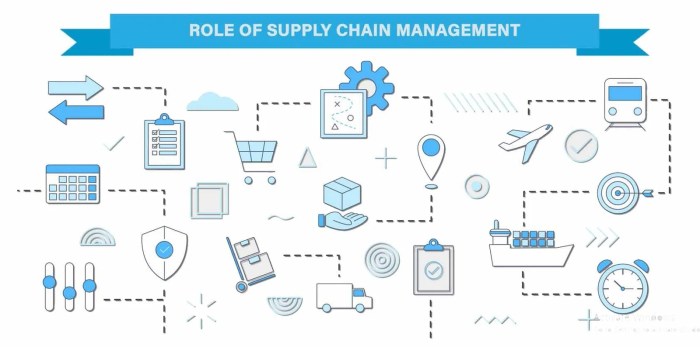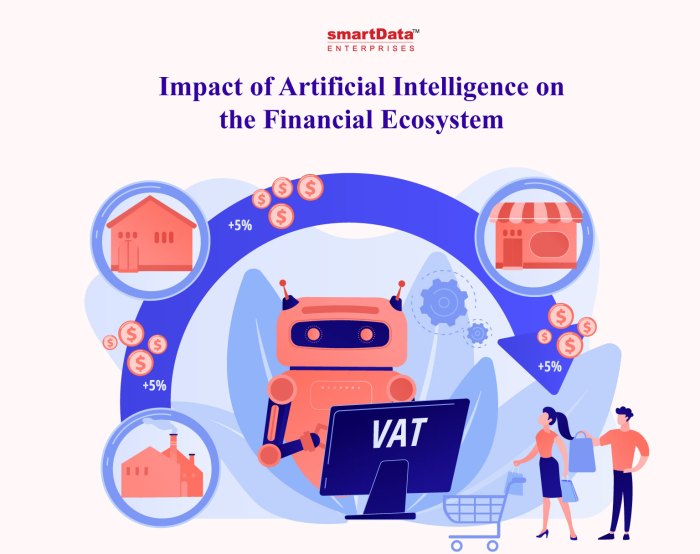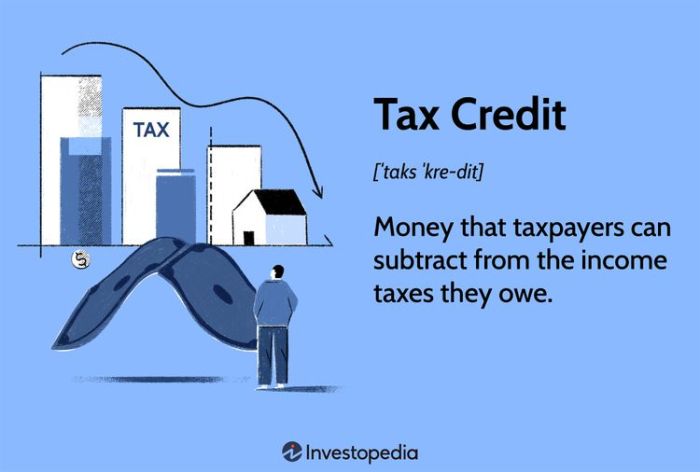The Complexities of Accounting in the Gig and Digital Economy present a unique challenge in today’s rapidly evolving business landscape. The rise of freelance work, remote collaborations, and digital marketplaces has blurred traditional employment lines, creating a need for adaptable accounting practices. Understanding how to accurately track income, manage expenses, and ensure tax compliance in this decentralized environment is crucial for both gig workers and the businesses that engage them. This exploration delves into the multifaceted aspects of accounting within the gig and digital economies, providing insights into the specific challenges and opportunities presented by this transformative shift.
This analysis examines the key differences between traditional employment and the gig economy, highlighting the unique accounting considerations involved. We’ll explore various income recognition methods, expense management strategies, and the complexities of tax compliance across different jurisdictions. The role of technology in simplifying accounting processes will also be discussed, along with the importance of financial planning for gig workers facing fluctuating incomes. Finally, we will look towards the future of accounting in this dynamic sector, considering the impact of emerging technologies and evolving regulations.
Defining the Gig and Digital Economy

The gig and digital economies are intertwined yet distinct phenomena transforming the global landscape of work and commerce. Understanding their characteristics and the unique accounting challenges they present is crucial for businesses and individuals navigating this new economic reality. While both leverage technology, their fundamental structures and implications for accounting differ significantly.
The digital economy encompasses all economic activity facilitated by digital technologies, including e-commerce, online services, and data-driven businesses. It’s characterized by its global reach, instantaneous transactions, and reliance on digital infrastructure. The gig economy, on the other hand, is a subset of the digital economy focusing specifically on short-term, project-based work arrangements. It’s defined by its independent contractors, freelancers, and temporary workers, often engaging in platform-mediated work. While many gig workers operate within the digital economy, not all digital economy activities are characterized by the short-term, project-based nature of gig work.
Gig Work Arrangements and Accounting Implications
Various gig work arrangements exist, each posing unique accounting challenges. For example, freelance writers might invoice clients directly, requiring meticulous record-keeping of income and expenses. Ride-sharing drivers, in contrast, receive payments through a platform, necessitating reconciliation of platform statements with individual tax obligations. Similarly, online tutors or virtual assistants often manage their own payments and expenses, making accurate tax reporting essential. The diverse nature of gig work necessitates flexible and adaptable accounting practices capable of handling varied payment structures, expense categories, and tax regulations across multiple jurisdictions. Failure to properly account for these complexities can lead to significant tax liabilities and legal issues.
Challenges of Decentralization in the Digital Economy for Traditional Accounting
The decentralized nature of the digital economy presents substantial challenges for traditional accounting practices. The traditional model relies on centralized organizational structures with clearly defined financial flows. However, the digital economy features a multitude of actors, often operating across borders, with complex and opaque financial transactions. For example, cryptocurrency transactions introduce new complexities due to their volatility and lack of standardized accounting practices. Similarly, the use of blockchain technology, while offering potential benefits in terms of transparency and security, also presents challenges for auditors seeking to verify financial information. Traditional accounting frameworks struggle to adequately capture the dynamic and decentralized nature of digital transactions, highlighting the need for innovative accounting methods and regulatory frameworks to effectively manage the financial aspects of this rapidly evolving economic landscape. The lack of consistent global standards adds another layer of complexity.
Income Recognition and Reporting for Gig Workers
The rise of the gig and digital economy has presented significant challenges to traditional accounting practices, particularly concerning income recognition and reporting for gig workers. Unlike traditional employees with regular paychecks and W-2 forms, independent contractors and freelancers often receive income in irregular intervals and from multiple sources, leading to complexities in accurately determining taxable income and fulfilling tax obligations. This section will delve into these complexities, exploring various income tracking methods and the implications of operating across different tax jurisdictions.
Determining taxable income for independent contractors and freelancers involves a nuanced understanding of allowable deductions. Unlike employees who have taxes withheld directly from their paychecks, gig workers are responsible for tracking their income and expenses meticulously to calculate their net taxable income. This necessitates a clear distinction between business expenses and personal expenses, which can be challenging to maintain, especially when working from home or using personal assets for business purposes. Incorrectly categorizing expenses can lead to penalties and underpayment of taxes.
Methods for Tracking Income and Expenses
Effective income and expense tracking is crucial for accurate tax reporting. Several methods exist, each with its own advantages and disadvantages. Choosing the right method depends on individual preferences, technological proficiency, and the complexity of one’s gig work.
| Method | Pros | Cons | Suitability |
|---|---|---|---|
| Spreadsheets (e.g., Microsoft Excel, Google Sheets) | Highly customizable, readily available, relatively inexpensive. Offers strong control over data. | Requires manual data entry, prone to errors if not meticulously maintained, limited automation capabilities. | Suitable for individuals with basic tech skills and a small number of income streams. |
| Dedicated Accounting Apps (e.g., QuickBooks Self-Employed, FreshBooks) | Automated expense tracking (through bank account linking), mileage tracking, invoice generation, tax report preparation features. | Subscription fees, learning curve for some features, potential data security concerns. | Ideal for individuals with multiple income streams, requiring more sophisticated tracking and reporting. |
| Manual Logging (Notebooks, Journals) | No technology required, simple to understand, offline accessibility. | Time-consuming, prone to errors and inconsistencies, difficult to analyze data, no automated reporting. | Suitable only for individuals with very few income sources and a high level of organizational skills. Not recommended for complex financial situations. |
Tax Implications of Multiple Jurisdictions
Gig workers often operate across multiple state or even international borders. This creates complexities in tax compliance as each jurisdiction has its own tax laws and reporting requirements. For example, a freelancer might have clients in California, New York, and Texas. They would need to register with the relevant tax authorities in each state, understand and comply with differing tax rates and thresholds, and file separate tax returns accordingly. Failure to comply with the tax laws of each jurisdiction can result in significant penalties and legal issues. The complexities are further amplified for international gig workers, who must navigate different tax treaties and currency exchange rates. Proper legal and accounting advice is crucial in such situations.
Expense Management and Deductions
Navigating the world of expenses as a gig worker can feel like charting uncharted territory. Unlike traditional employees who often have their taxes handled largely by their employers, gig workers bear the full responsibility of tracking, documenting, and deducting eligible expenses. Understanding these deductions is crucial for minimizing your tax burden and maximizing your earnings. This section will clarify common deductible expenses, highlight key differences between gig worker and traditional employee expense deduction rules, and provide a practical guide for efficient expense tracking.
Gig workers have a broader range of deductible business expenses compared to traditional employees. This is because they are essentially running their own small businesses, incurring costs directly related to generating income. However, careful record-keeping is essential to substantiate these deductions during tax season.
Common Deductible Expenses for Gig Workers
Many expenses incurred while performing gig work are tax-deductible. Accurate record-keeping is paramount for claiming these deductions. Failing to maintain proper documentation can result in disallowed deductions.
Examples of common deductible expenses include:
- Self-Employment Tax: A portion of your self-employment tax is deductible. This is because gig workers pay both the employer and employee portions of Social Security and Medicare taxes.
- Home Office Expenses: If a portion of your home is exclusively used for business, you can deduct a percentage of expenses such as mortgage interest, rent, utilities, and repairs. This percentage is determined by the ratio of business-use space to total home space.
- Car and Travel Expenses: Costs associated with using your vehicle for work, including gas, oil changes, repairs, insurance, and depreciation, are deductible. You can use either the standard mileage rate or the actual expense method to calculate this deduction. Travel expenses to client meetings or conferences are also deductible.
- Professional Development and Education: Courses, workshops, and seminars directly related to improving your skills for your gig work are often deductible.
- Software and Supplies: The cost of software subscriptions, office supplies, and other materials necessary for your work are deductible.
- Health Insurance Premiums: If you are self-employed and pay for your own health insurance, you may be able to deduct the premiums.
Expense Deduction Rules: Gig Workers vs. Traditional Employees
The key difference lies in the responsibility for tracking and reporting expenses. Traditional employees typically receive reimbursements for business expenses or have these expenses covered by their employer. Gig workers, however, must meticulously track all expenses and claim them as deductions on their tax returns. This requires careful record-keeping and a thorough understanding of tax regulations. They are responsible for determining what is a deductible business expense, and they bear the risk of IRS scrutiny if their deductions are not properly documented.
Optimizing Expense Tracking and Documentation for Tax Purposes
Effective expense tracking is crucial for minimizing your tax liability. Here’s a guide for gig workers to streamline the process:
A robust system for tracking expenses will greatly simplify tax preparation. Consider these suggestions:
- Use Accounting Software: Software like QuickBooks Self-Employed or FreshBooks can automate many aspects of expense tracking and reporting.
- Maintain Detailed Records: Keep receipts, invoices, and bank statements for all business expenses. Include the date, vendor, amount, and a brief description of the expense.
- Categorize Expenses: Organize your expenses by category to simplify tax preparation. This will make it easier to identify deductible expenses and prepare your tax return.
- Regularly Review and Update Records: Don’t wait until tax season to organize your expenses. Regularly review and update your records to ensure accuracy and prevent errors.
- Consult a Tax Professional: If you’re unsure about which expenses are deductible or how to properly document them, consult a tax professional for guidance.
Tax Compliance and Regulatory Challenges
Navigating the tax landscape for gig workers and the businesses that utilize them presents a complex web of challenges. The lack of standardized regulations and the inherent variability in gig work arrangements create significant difficulties in ensuring accurate and timely tax compliance. This section explores the complexities of tax obligations, common tax-related issues, and the evolving regulatory environment impacting accounting practices within the gig economy.
The varying tax obligations for gig workers are heavily influenced by their location and income level. Self-employment taxes, for instance, are a significant consideration, as gig workers are generally responsible for paying both the employer and employee portions of Social Security and Medicare taxes, unlike traditional employees. Furthermore, income tax liabilities vary significantly depending on the individual’s total income and applicable deductions. A gig worker earning a modest income in a state with a low tax rate will face different obligations than a high-earning individual in a state with a high tax rate and complex local regulations. International gig workers further complicate the situation, introducing cross-border tax implications and the need to navigate multiple tax jurisdictions.
Tax-Related Issues Faced by Gig Workers and Businesses
Many tax-related issues stem from the lack of clear employer-employee distinctions in the gig economy. Gig workers often struggle with accurately tracking income and expenses, leading to underreporting or overreporting of income and inaccurate deduction claims. Businesses engaging gig workers face challenges in correctly classifying workers as independent contractors versus employees, impacting their tax withholding and reporting responsibilities. This misclassification can result in significant penalties for both the business and the worker. Another common issue is the lack of consistent tax reporting systems across various platforms. The decentralized nature of the gig economy makes it challenging to aggregate income and expense data for tax purposes.
The Regulatory Landscape of the Gig Economy
The regulatory landscape surrounding the gig economy is constantly evolving, with governments worldwide grappling with how to best classify and tax gig workers. This uncertainty creates challenges for both gig workers and businesses in complying with tax regulations. Many countries are still debating whether gig workers should be classified as independent contractors or employees, impacting tax obligations, worker benefits, and labor protections. The lack of consistent regulations across jurisdictions further complicates the situation, making it difficult for businesses operating in multiple countries to comply with varying tax rules. Furthermore, the rapid technological advancements and evolving business models within the gig economy continue to present new regulatory challenges that require ongoing adaptation and clarification. For example, the rise of cryptocurrency payments introduces additional complexities in tracking income and determining tax liabilities.
Payroll and Payment Processing in the Gig Economy
The gig economy’s reliance on independent contractors presents unique challenges for payroll and payment processing, differing significantly from traditional employer-employee relationships. The diverse payment methods and varying legal obligations necessitate careful consideration of both the worker’s and the platform’s responsibilities. Understanding these complexities is crucial for compliance and efficient operation within this dynamic sector.
Payment methods in the gig economy are varied and often depend on the platform or client. While some platforms offer direct deposit, mirroring traditional payroll, many utilize third-party payment platforms like PayPal or Stripe. These platforms offer convenience and speed but also introduce additional layers of complexity regarding fees, reconciliation, and potential disputes.
Payment Methods in the Gig Economy
A comparison of common payment methods highlights the diverse landscape of gig economy compensation. Direct deposit offers a familiar, streamlined process, integrating easily with existing accounting systems. However, payment platforms often involve intermediary fees and potentially slower processing times, while also presenting challenges in tracking payments and resolving discrepancies.
- Direct Deposit: Offers speed and efficiency, directly transferring funds into the worker’s bank account. It minimizes processing fees and simplifies reconciliation. However, it requires the platform or client to have access to the worker’s banking information.
- Payment Platforms (PayPal, Stripe, etc.): Provide flexibility and accessibility, allowing for quicker payments even without direct bank details. However, transaction fees can be significant, especially for numerous smaller payments. Reconciling payments can also be more complex.
- Physical Checks: A less common method, particularly for larger platforms, due to its inefficiency and increased administrative burden. It’s more susceptible to delays and potential loss or theft.
- Cryptocurrency: Emerging as a payment option, offering potential for lower transaction fees and faster international transfers. However, it comes with its own set of complexities regarding volatility, security, and regulatory uncertainty.
Challenges of Processing Payroll for Gig Workers
Processing payroll for gig workers differs substantially from traditional employee payroll. The absence of standard employment contracts, the fluctuating nature of work, and the diverse payment methods create significant administrative hurdles. Accurate record-keeping, timely payment processing, and compliance with tax regulations become particularly crucial.
- Tracking Work Hours and Payments: Accurately tracking the hours worked or tasks completed can be challenging, especially when dealing with a large number of independent contractors working on various projects.
- Managing Multiple Payment Methods: The use of diverse payment methods adds complexity to reconciliation and reporting. Managing fees and ensuring accurate payment to each worker becomes a significant administrative task.
- Compliance with Tax Regulations: Platforms and clients must comply with various tax regulations related to independent contractors, including accurate reporting and withholding requirements. This varies significantly depending on location and payment structure.
- Dispute Resolution: Disputes over payments or work completed can be more challenging to resolve in the gig economy, requiring clear contracts and efficient dispute resolution mechanisms.
Legal and Tax Implications of Different Payment Structures
The choice between a 1099 (independent contractor) and W-2 (employee) classification significantly impacts both the worker and the platform’s legal and tax obligations. Misclassifying workers can lead to significant penalties and legal challenges. Understanding the distinctions is vital for compliance.
Discover how How Automation is Changing the Future of Accounting has transformed methods in this topic.
- 1099 (Independent Contractor):
- The worker is responsible for paying self-employment taxes (Social Security and Medicare).
- The platform or client typically does not withhold taxes from payments.
- The platform or client issues a 1099-NEC form reporting payments to the IRS.
- Workers have more control over their work schedule and methods.
- W-2 (Employee):
- The employer withholds income taxes, Social Security, and Medicare taxes from the worker’s pay.
- The employer is responsible for paying employer’s share of Social Security and Medicare taxes.
- The employer issues a W-2 form reporting wages to the IRS.
- Workers generally have less control over their work schedule and methods.
Accounting Software and Technology for Gig Workers and Businesses
The rise of the gig and digital economy has created a need for specialized accounting software and tools that cater to the unique financial situations of both gig workers and the businesses that engage them. Traditional accounting methods often fall short in managing the complexities of irregular income streams, varied expenses, and diverse payment methods common in this sector. Fortunately, a range of technological solutions are available to simplify these processes and improve financial organization.
The availability of user-friendly accounting software and apps is transforming how gig workers and businesses manage their finances. These tools streamline tasks such as income tracking, expense categorization, tax preparation, and invoicing, ultimately leading to increased efficiency and reduced administrative burden. The integration of these technologies also allows for better financial forecasting and planning, enabling more informed business decisions.
Accounting Software Options for Gig Workers
Several software options cater specifically to the needs of gig workers. These platforms typically offer simplified interfaces, focusing on easy income and expense tracking, mileage logging, and tax-related features. They often integrate with other financial tools and services to provide a holistic financial management solution. Some popular examples include FreshBooks, Zoho Invoice, and QuickBooks Self-Employed. These platforms differ in their pricing models, features, and level of customization. For instance, FreshBooks is known for its user-friendly interface and robust invoicing capabilities, while QuickBooks Self-Employed emphasizes its tax preparation tools and integration with tax professionals. Zoho Invoice offers a balance of features at a competitive price point.
Features and Functionalities Comparison, The Complexities of Accounting in the Gig and Digital Economy
A comparison of features reveals key differences. While all mentioned platforms allow for income tracking and expense management, the depth of these features varies. Some platforms offer advanced features such as automated expense categorization, mileage tracking, and integration with bank accounts for automatic transaction import. Others may provide more basic functionalities, requiring more manual input from the user. Furthermore, reporting capabilities differ significantly, with some platforms generating detailed financial reports suitable for tax preparation, while others offer more limited reporting options. The choice of software depends on the individual’s needs and technical proficiency. For example, a gig worker with many expenses and complex income streams may benefit from a platform with advanced expense categorization and reporting features.
Technology’s Impact on Income Tracking, Expense Management, and Tax Preparation
Technology significantly simplifies various aspects of financial management for gig workers and businesses. Income tracking is streamlined through automated import of transactions from bank accounts and payment platforms. Expense management is simplified with features like automated expense categorization, receipt scanning, and mileage tracking. Tax preparation is facilitated through integration with tax software and the generation of tax reports directly from the accounting software. These tools reduce the time and effort required for financial management, allowing individuals to focus on their core work activities. For example, automatic expense categorization eliminates the need for manual sorting and coding of expenses, while the generation of tax reports saves significant time during tax season. Furthermore, the ability to track income and expenses in real-time provides valuable insights into financial performance and enables better financial planning.
Financial Forecasting and Planning for Gig Workers
Financial planning and budgeting are crucial for gig workers, whose income often fluctuates significantly from month to month. Unlike traditional employment with a consistent salary, gig work requires proactive financial management to ensure stability and avoid unexpected financial hardship. A well-structured financial plan allows gig workers to navigate income variability, meet their financial obligations, and achieve their financial goals.
The unpredictable nature of gig income necessitates a robust forecasting model. Without accurate predictions, gig workers risk overspending during high-earning periods and facing financial shortfalls during leaner times. A proactive approach, incorporating realistic income projections and expense tracking, is vital for navigating the financial complexities of the gig economy.
A Simple Financial Forecasting Model for Gig Workers
This model helps gig workers predict future income and expenses. It involves three key steps: income projection, expense budgeting, and cash flow analysis. First, realistically estimate future income based on past performance, upcoming projects, and anticipated client work. Second, create a detailed budget outlining all anticipated expenses, categorizing them for better tracking and control. Finally, analyze the difference between projected income and expenses to understand the potential cash flow situation. This model should be reviewed and adjusted regularly to reflect changes in work volume, project rates, or personal expenses.
Strategies for Managing Cash Flow and Mitigating Financial Risks
Effective cash flow management is paramount for gig workers. Strategies include creating a buffer fund to cover unexpected expenses or income shortfalls. This buffer can be built by consistently setting aside a portion of earnings. Diversifying income streams by working with multiple clients or platforms reduces reliance on a single source of income, thus mitigating financial risks associated with project cancellations or client payment delays. Regularly reviewing financial statements and comparing actual income and expenses to projected figures helps identify areas for improvement and potential adjustments to the financial plan. Additionally, setting financial goals and establishing a clear timeline for achieving them provides direction and motivation for responsible financial management. For example, a gig worker might aim to save a specific amount each month to build an emergency fund or pay off debt. Tracking progress toward these goals reinforces good financial habits.
Example Financial Forecast
Let’s assume a freelance graphic designer averages $3,000 in monthly income based on past performance, with expenses averaging $1,500 (including software subscriptions, marketing, and living expenses). A simple forecast for the next three months might look like this:
| Month | Projected Income | Projected Expenses | Projected Cash Flow |
|---|---|---|---|
| August | $3,000 | $1,500 | $1,500 |
| September | $2,500 | $1,500 | $1,000 |
| October | $3,500 | $1,500 | $2,000 |
This forecast shows fluctuating cash flow. The designer can use this information to adjust spending during months with lower projected income and save more during higher-income months. This approach allows for more effective cash flow management and reduces the risk of financial instability.
The Future of Accounting in the Gig and Digital Economy
The gig and digital economy, characterized by its fluidity and technological dependence, is rapidly reshaping the accounting landscape. Traditional accounting practices are struggling to keep pace with the unique challenges and opportunities presented by this evolving ecosystem. The integration of emerging technologies and the adaptation of regulatory frameworks will be crucial in defining the future of accounting within this dynamic environment.
The increasing reliance on technology, coupled with the inherent complexities of the gig economy, necessitates a proactive approach to accounting practices. This involves embracing new technologies, adapting to evolving regulations, and developing a new skillset for accountants to effectively navigate this rapidly changing field.
Impact of Emerging Technologies
Blockchain technology, with its inherent transparency and security, holds immense potential for revolutionizing accounting processes within the gig economy. Imagine a system where transactions are automatically recorded and verified on a distributed ledger, eliminating the need for manual reconciliation and reducing the risk of fraud. Similarly, artificial intelligence (AI) can automate various accounting tasks, such as invoice processing, expense tracking, and tax calculations, freeing up accountants to focus on higher-level analysis and strategic decision-making. For example, AI-powered tools could analyze vast datasets of gig worker income and expenses to identify potential tax optimization strategies or predict future earnings with greater accuracy. The implementation of such technologies will streamline operations, enhance accuracy, and improve efficiency across the board.
Evolution of Accounting Regulations and Compliance Requirements
The regulatory landscape for the gig economy is still evolving, struggling to catch up with the rapid growth and complexities of this sector. We can anticipate a move towards more standardized reporting requirements and clearer guidelines for classifying gig workers and their income. Governments worldwide are grappling with the tax implications of this new economic model, leading to ongoing debates about the appropriate level of taxation for gig workers and the responsibility of platforms in facilitating tax compliance. For example, the debate surrounding the classification of Uber drivers as independent contractors or employees highlights the need for more precise legal definitions and clearer regulatory frameworks. Future regulations will likely focus on improving transparency, ensuring fair tax collection, and protecting the rights of both gig workers and businesses.
Essential Skills and Knowledge for Accountants
To thrive in the evolving gig economy, accountants will need to acquire a diverse skillset beyond traditional accounting knowledge. Proficiency in data analytics, coupled with a strong understanding of emerging technologies like blockchain and AI, will be paramount. A deep understanding of tax laws and regulations, particularly those specific to the gig economy, will be essential. Furthermore, strong communication and interpersonal skills will be crucial for effectively interacting with gig workers and businesses, many of whom may lack formal accounting expertise. The ability to adapt quickly to change and embrace lifelong learning will be critical for accountants to remain competitive and relevant in this dynamic environment. Specific examples include the need for skills in using cloud-based accounting software, interpreting complex datasets, and advising clients on effective financial planning strategies within the context of the gig economy’s unique financial realities.
Closing Notes: The Complexities Of Accounting In The Gig And Digital Economy
Navigating the accounting complexities of the gig and digital economy requires a proactive and informed approach. From mastering income tracking and expense management to understanding the nuances of tax compliance and leveraging technological tools, successful financial management in this environment demands adaptability and precision. By understanding the unique challenges and opportunities presented by this evolving landscape, both gig workers and businesses can optimize their financial strategies and ensure long-term success. The future of accounting in this sector is undeniably intertwined with technological advancements and evolving regulatory frameworks, promising a dynamic and continuously evolving field.
FAQ Summary
What are the main differences between accounting for traditional employees and gig workers?
Traditional employees have taxes withheld from their paychecks, while gig workers are responsible for self-employment taxes and quarterly estimated tax payments. Expense deduction rules also differ significantly.
What accounting software is best suited for gig workers?
Several platforms cater to freelancers, including FreshBooks, Xero, and QuickBooks Self-Employed. The best choice depends on individual needs and complexity of financial activities.
How can I minimize my tax liability as a gig worker?
Meticulous record-keeping of income and expenses is crucial. Consult with a tax professional to understand all applicable deductions and credits.
What are the implications of working across multiple states as a gig worker?
You may be required to file tax returns in multiple states, depending on the nature and location of your work. Seek professional tax advice to ensure compliance.








